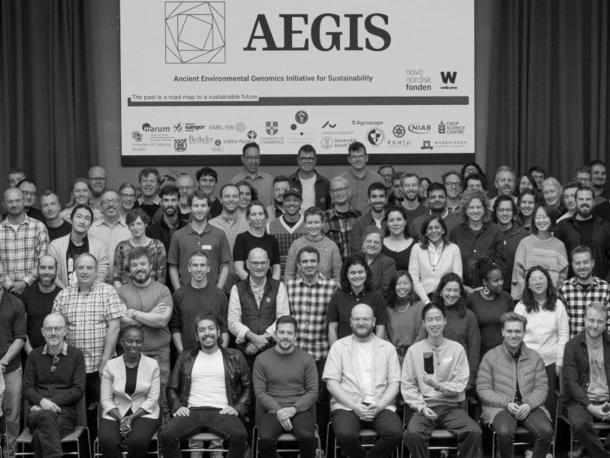- About
-
Research
- Agronomy and farming systems
-
Agricultural crop research
-
Research projects - agriculture
- About SASSA-SAI
- BioBoost
- Biomass Connect
- CTP for Sustainable Agricultural Innovation
- Climate Ready Beans - workshop presentations (March 2022)
- Crop diversity HPC cluster
- Final project workshop
- Get involved
- List of materials
- News and updates
- Partners
- The Sentinel Crop Disease Surveillance Network
- The research team
- UK Cereal Pathogen Virulence Survey
- UK wheat varieties pedigree
- Weed management - IWM Praise
- Crop breeding
- Crop characterisation
- Data sciences
- Genetics and pre-breeding
- Plant biotechnology
- Plant pathology and entomology
- Resources
-
Research projects - agriculture
- Horticultural crop research
- Crop Science Centre
- Research Projects
- Research Publications
-
Services
- Analytical Services
- Business Development
- Commercial trial services
- Membership
- Plant breeding
- Plant characterisation
- Seed certification
-
Training
-
Technical agronomy training
- Advanced crop management of bulb onions
- Advanced crop management of vegetable brassicas
- Advanced nutrient management for combinable crops
- Benefits of cover crops in arable systems
- Best practice agronomy for cereals and oilseed rape
- Developing a Successful Strategy for Spring Crops
- Disease Management and Control in Cereal Crops
- Incorporating SFI options into your rotation
- Protected Environment Horticulture – Best Practice
- Techniques for better pest management in combinable crops
- Crop inspector and seed certification
- Licensed seed sampling
-
Technical agronomy training
- News & Views
- Events
-
Knowledge Hub
- Alternative and break crops
-
Crop genetics
- POSTER: Diversity enriched wheat (2025)
- POSTER: Genetics of wheat flag leaf size (2024)
- POSTER: Wheat yield stability (2024)
- Poster: Traits for future cereal crops (2022)
- POSTER: wild wheat fragment lines (2022)
- POSTER: Improving phenotyping in crop research (2022)
- PRESENTATION: Plant breeding for regen ag
- Poster: Designing Future Wheat (2020)
- Crop nutrition
-
Crop protection
- POSTER: Understanding the hierarchy of black-grass control (2025)
- POSTER: Emerging weed threats (2025)
- POSTER: Disease control in barley (2025)
- Poster: Weed seed predation in regen-ag (2024)
- POSTER: Disease control in winter wheat (2025)
- POSTER: Mode of action (2023)
- POSTER: Inter-row cultivation for black-grass control (2022)
- POSTER: UKCPVS winter wheat yellow rust in spring 2025 (2025)
- Poster: Management of Italian ryegrass (2021)
- POSTER: UKCPVS winter wheat rusts - 2024/25 review (2025)
- POSTER: UKCPVS disease monitoring and the benefit to UK growers (2025)
- POSTER: Diagnosing and scoring crop disease using AI (2025)
- POSTER: Finding new sources of Septoria resistance (2024)
- POSTER: Fungicide resistance research (2024)
- POSTER: Detecting air-borne pathogens (2024)
- POSTER: Oilseed rape diseases (2024)
- POSTER: Fungicide resistance research (2024)
- POSTER: Improving chocolate spot resistance (2022)
- Poster: Pathogen diagnostics (2022)
- Fruit
- Regen-ag & sustainability
-
Seed certification
- POSTER: Wheat DUS (2024)
- POSTER: Innovation in variety testing (2024)
- POSTER: AI and molecular markers for soft fruit (2024)
- POSTER: Barley crop identification (2023)
- POSTER: Herbage grass crop identification (2023)
- POSTER: Herbage legume crop identification (2024)
- POSTER: Minor cereal crop inspecting (2023)
- POSTER: Pulse crop identification (2023)
- POSTER: Wheat crop identification (2023)
-
Soils and farming systems
- POSTER: Checking soil health - across space and time (2024)
- POSTER: Checking soil health - step by step (2024)
- POSTERS: Changing soil management practices (2022)
- Poster: Monitoring natural enemies & pollinators (2021)
- POSTER: Soil structure and organic matter (2024)
- POSTER: Novel wheat genotypes for regen-ag (2024)
- Video: New Farming Systems project (2021)
- Video: Saxmundham Experimental Site (2021)
- POSTER: Impact of prolonged rainfall on soil structure (2024)
- POSTER: Soil & agronomic monitoring study (2024)
- POSTER: The impact of rotations & cultivations (2024)
- VIDEO: Great Soils; soil sampling guidelines (2020)
- Poster: Soil invertebrates within arable rotations (2024)
- VIDEO: Soil health assessment (2021)
- POSTER: Saxmundham - modern P management learnings
- POSTER: Saxmundham - 125 years of phosphorus management
- Poster: Soil phosphorus - availability, uptake and management (2025)
- POSTER: Morley long term experiments (2025)
- POSTER: Exploiting novel wheat genotypes for regen-ag (2025)
- Video: Saxmundham Experimental Site (2021)
- Varieties
Dr Kostya Kanyuka
Head of Pathology

Dr Kanyuka leads NIAB’s strategic and applied research on the biology, detection, surveillance, epidemiology and management of diseases and pests of field crops, working with a wide range of academic and commercial partners and customers.
With a background in virology, Dr Kanyuka’s overall research interest is to understand how pathogens cause disease on plants and how plants resist pathogens at the mechanistic and molecular level with the aim of developing sustainable solutions for disease control in crops, extensively utilising existing and developing new plant virus-based expression tools for rapid gene function analysis in both plants and the associated pathogens.
During the past decade he has led research on dissecting the wheat interactions with Septoria and identification of disease resistance genes in wheat, and more recently also on understanding the genetic basis of resistance to fungal pathogens such as Cercospora and mildew in legumes and development of new RNA-interference based and genome editing approaches for crop improvement.
RESEARCH PROJECTS
Host immunity as a driver of virulence evolution in cereal rust fungi (BB/W018403/1)
Duration: 2022-2025
Partners: Peter Dodds & Melania Figueroa (SCIRO, Australia), Brian Steffenson (University of Minnesota, USA)
Summary: This BBSRC/NSF-BIO funded project seeks to understand how the interactions between host immunity genes and pathogen virulence genes influence the evolution of pathogen populations to overcome host resistance. We focus on three related fungal rust species that infect different cereal crop hosts: stem rust infecting wheat, brown rust infecting barley, and crown rust infecting oats. These present contrasting levels of sexuality versus clonality and provide an opportunity to compare and contrast between related pathogen species and their hosts and different levels of sexual versus clonal reproduction.
Understanding the eco-evolutionary drivers of emerging antifungal resistance (NE/X005259/1)
Duration: 2022-2026
Partners: Matthew Fisher & Leon Barron (Imperial College London), Andrew Singer (UK Centre for Ecology and Hydrology), Toni Gladding (The Open University)
Summary: This NERC funded project aims to use molecular-based surveys and ecological experimentation to map, measure and mechanistically dissect the eco-evolutionary processes including agricultural practices and green waste recycling that drive evolution of fungicide resistance in fungal pathogens. Focusing on the Aspergillus species complex, we will develop a systems-based approach that links the impact of fungicides on the ecology of fungal communities through to human exposure to these potentially deadly fungal bioaerosols.
Rust-resistant beans for Africa
Duration: 2022-2027
Partners and collaborators: Pamela Paparu (National Agricultural Research Organisation, Uganda), Clare Mukankusi (CIAT, Uganda), Willem Boshoff (University of the Free State, SA), Lida Derevnina (Crop Science Centre, Cambridge, UK)
Summary: This project funded through a philanthropic donation aims to enhance the fundamental understanding of intracellular nucleotide-binding site leucine-rich repeat immune receptors (NLRs) regulatory networks in common bean (Phaseolus vulgaris), to identify novel sources of resistance to bean rust (Uromyces appendiculatus) that can be exploited for crop improvement through breeding, and to develop pathogenomics capability for conducting molecular monitoring and surveillance of bean rust races. This will help to greatly enhance basic understanding of common bean - U. appendiculatus pathosystem and provide new capabilities to support researchers and extension service providers in East Africa, enabling them to implement more effective disease control strategies.
Exploration of NIAB’s synthetic wheat as a new source of disease resistance for effective genetic control of Septoria tritici blotch disease: PhD Studentship project (Anisa Blower)
Duration: 2022-2026
Co-supervisors: Rumiana Ray (The University of Nottingham, UK), Steve Rawsthorne (The Morley Agricultural Foundation, UK)
Summary: This project funded through Collaborative Training Partnership for Sustainable Agricultural Innovation aims to is to explore synthetic hexaploid wheat lines (SHWs) harnessing genetic diversity from the wheat wild progenitor species Aegilops tauschii developed at NIAB and the Nested Association Mapping (NAM) populations derived from crosses between the primary SHWs and modern bread wheat varieties Paragon and Robigus as a source of novel disease resistance genes for effective genetic control of Septoria through marker-assisted breeding.
Monitoring and understanding fungicide resistance development in cereal pathogens to inform disease management strategies (21120018a)
Duration: 2023-2024
Partnering and collaborating organisations: ADAS, Scotland’s Rural College, Teagasc, Bayer CropScience, BASF, Syngenta, Corteva Agriscience
Summary: To achieve optimal disease control while minimising the risk of development of fungicide resistance in fungal pathogens of wheat such as Zymoseptoria tritici, a causal agent of Septoria tritici blotch disease, a rational use of the available single-site fungicides and potential new actives entering the market is needed. This AHDB funded project aims to monitor efficacy of key actives representing all current modes of action (MOAs) as well as any new products as well as to obtain knowledge on the evolution and temporal and spatial accumulation of fungicide insensitive genotypes within populations of Z. tritici thus informing optimal use of fungicides regarding choice, timing, dose-rate and MOA partnering aspects.
SELECTED RECENT PUBLICATIONS
Tidd H, Rudd JJ, Ray RV, Bryant R, Kanyuka K. (2023). A large bioassay identifies Stb resistance genes that provide broad resistance against Septoria tritici blotch disease in the UK. Front Pant Sci 13:1070986.
Blyth HR, Smith D, King R, Bayon C, Ashfield T, Walpole H, Venter E, Ray RV, Kanyuka K, Rudd JJ. (2023). Fungal plant pathogen "mutagenomics" reveals tagged and untagged mutations in Zymoseptoria tritici and identifies SSK2 as key morphogenesis and stress-responsive virulence factor. Front Plant Sci 14:1140824.
Chen H, King R, Smith D, Bayon C, Ashfield T, Torriani S, Kanyuka K, Hammond-Kosack K, Bieri S, Rudd J. (2023). Combined pangenomics and transcriptomics reveals core and redundant virulence processes in a rapidly evolving fungal plant pathogen. BMC Biol 21(1):24.
Welch T, Bayon C, Rudd JJ, Kanyuka K, Kettles GJ. (2022). Induction of distinct plant cell death programs by secreted proteins from the wheat pathogen Zymoseptoria tritici. Sci Rep 12(1):17880.
Kanyuka K, Igna AA, Solomon PS, Oliver RP. (2022). The rise of necrotrophic effectors. New Phytol 233(1):11-14.
For a full list of publications see Google Scholar







